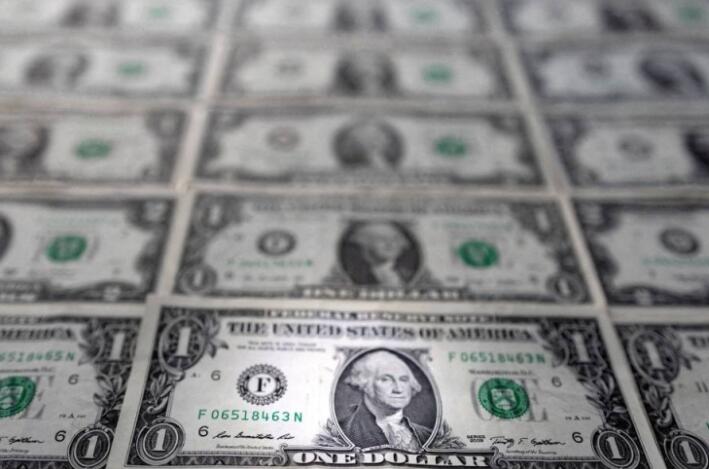The dollar's rapid rise since the start of the year has been a double-edged sword for U.S. multinationals, forcing some of them to decide whether to hedge or reposition their overseas activities to avoid repercussions.
For importers, a stronger dollar against the euro, yen or pound is a plus, as it makes the product they buy cheaper.
But for a U.S. exporting company, products sold in dollars have become more expensive, increasing the risk of losing customers and declining sales.

They also lose money when converting foreign earnings back into U.S. dollars.
A number of companies have revised their earnings forecasts for the year to deal with changing exchange rates, including computing giant Microsoft, which warned its quarterly sales would fall by US$460 million (RM2.03 billion) and net profit would drop by US$250 million, reasons It is the currency that takes a hit.
Adobe, Salesforce, Biogen and Pfizer have all warned that a rapid rise in the dollar will affect their accounts more than expected.
$40 billion hit
Corporate cash management platform Kyriba said companies outside the U.S. that generate most of their revenue are most at risk, starting with tech giants, medical device makers and service companies.
The currency effect could mean a $40 billion hit to S&P 500 earnings in the first half of the year, Kyriba estimates.
The U.S. Federal Reserve's decision to raise interest rates sharply to combat rampant inflation, coupled with an influx of funds into the U.S. as investors seek safe havens during uncertain times, has boosted the dollar.
Over the past 12 months, the dollar has gained 13% against the euro, near par, and 22% against the yen.
“In the short term, this is a good thing for the U.S. because it means all imports are cheaper and puts downward pressure on inflation,” said Desmond Rahman of the American Enterprise Institute think tank.
But going further, the impact on the U.S. economy is more subtle, because if exports fall, "the U.S. trade deficit widens, and then we get more foreign debt."
But multinational companies "have no control over these big projects," he explained.
However, they can mitigate the impact of foreign currency fluctuations by employing a hedging strategy, thereby mitigating their impact on commodity pricing and invoicing – using a financial instrument that provides an insurance against losses due to exchange rate changes.
Most companies already have hedging plans in place, and they change plans quarterly or even monthly, sometimes trying to predict currency movements, says Bob Stark of Kyriba.
But he noted that this is not an exact science, especially in times of great uncertainty about the direction of inflation, interest rates and the likelihood of a recession.
Change countries to reduce costs
But "since the pandemic started, CFOs have been very good at looking at multiple scenarios and building on them," Stark said.
For example, sporting goods giant Nike warned on Monday that currency effects would reduce annual revenue by several percentage points.But the impact on profits is much lower due to hedging.
The current high volatility in the foreign exchange market also means hedging costs are higher, so some companies choose not to use these tools.
Among other tools at their disposal, multinationals can reduce their exposure through other techniques, such as paying Japanese suppliers in US dollars, renegotiating prices, or even buying supplies from different countries.
Or they could simply wait for the dollar to depreciate before repatriating the profits.
However, according to Nikolai Roussanov, a professor of finance at the University of Pennsylvania, once the exchange rate strengthens, there is limited room for manoeuvre — especially if prices rise due to supply chain issues and energy costs Down.
"If you try to react to what has happened, it can bite you later because some of the movements are very brief," he told AFP.




